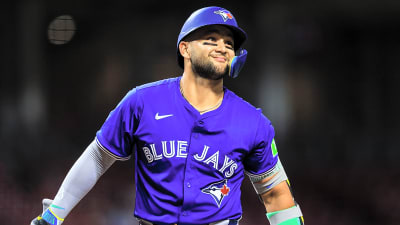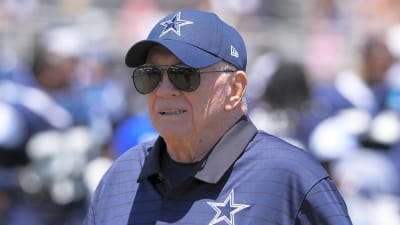
The Kawhi Leonard-Aspiration scandal has taken another turn, with new details surfacing about the actual terms of the contract. According to The Athletic, Leonard’s $28 million endorsement included a handful of minor obligations during his ACL recovery, but it also gave him the power to reject anything that didn’t align with his personal beliefs.
“The contract specified that Leonard would, among other asks, participate in one eight-hour day of production, one four-hour day of public relations, two one-hour community service events, one five-minute segment per week 'in conversation with (Clippers) Coach Ty Lue' while he sat out the 2021-22 season recovering from an injury, 'five organic comments/likes/RTs as requested by Aspiration' and three off-court projects," reported the Athletic on Friday.
Contrary to initial reporting, Kawhi’s endorsement did include some requirements, but the built-in exceptions allowed him to control how much he wanted to participate. According to former Aspiration CEO Andrei Cherny, the company had marketing plans in place with Kawhi for after his ACL recovery.
“In the months of discussion among our executives before signing the sponsorship, I don’t remember conversations about the NBA salary cap,” Cherny said. “I signed the contract shortly before I submitted my resignation, but before I left, there were numerous internal conversations about the various things Aspiration was planning to do with Leonard once the 2022-23 season began, including emails from the marketing team about their plans in just the week before my last day. I can’t speak to what was done or not done after I left, or why.”
This latest update by Cherny certainly raises a few questions. Did Aspiration genuinely expect Leonard to fulfill those duties, or were they just window dressing to justify the money? Secondly, why would an endorsement contract need an escape clause that allowed Leonard to opt out of obligations based on his personal "beliefs"? Most importantly, if Aspiration's contract is tied directly to Kawhi staying with the Clippers, how can Ballmer claim the team wasn't involved?
While Andrei Cherny's testimony might explain some of the weird details in Kawhi's endorsement contract, it doesn't do enough to dismiss suspicions. The timing is too coincidental, and the conditions of the contract itself are highly abnormal.
Both Steve Ballmer and Clippers alternate governor Dennis Wong invested small sums into the company shortly before Kawhi received payments. Multiple former Aspiration employees have also claimed the company knew the arrangement was meant to circumvent the salary cap.
Ultimately, Cherny resigned shortly after signing that deal with Kawhi, so he doesn't know the full story. Still, based on his perspective, Kawhi's "no-show" looks more like an actual (albeit abnormal) endorsement deal rather than a sham. If anyone would know the true nature of Leonard’s contract, it should be the executive who signed off on it.
At this stage, the revelations only complicate matters further. On paper, Leonard had obligations with Aspiration, but the opt-outs and timing of the deal leave the appearance of something far more questionable. Until the NBA gets definitive answers, the case against the Clippers will remain one of perception as much as proof.
More must-reads:
- Germany defeats Turkey for EuroBasket gold; Dennis Schroder named MVP
- New Hall of Famer won't get his number retired by any team
- The 'NFL's three-passing TD game leaders' quiz
Breaking News
Trending News
Customize Your Newsletter
 +
+
Get the latest news and rumors, customized to your favorite sports and teams. Emailed daily. Always free!








